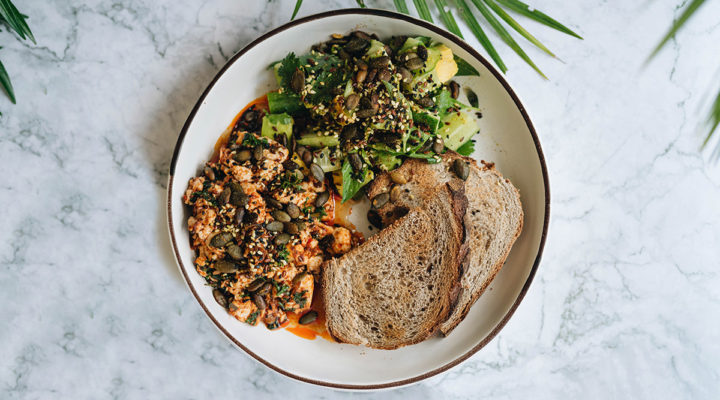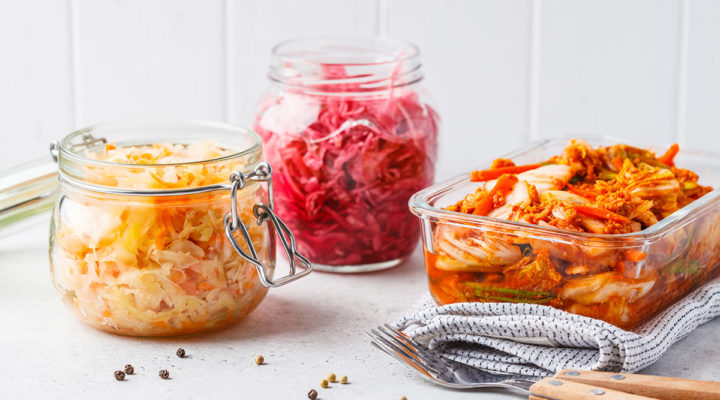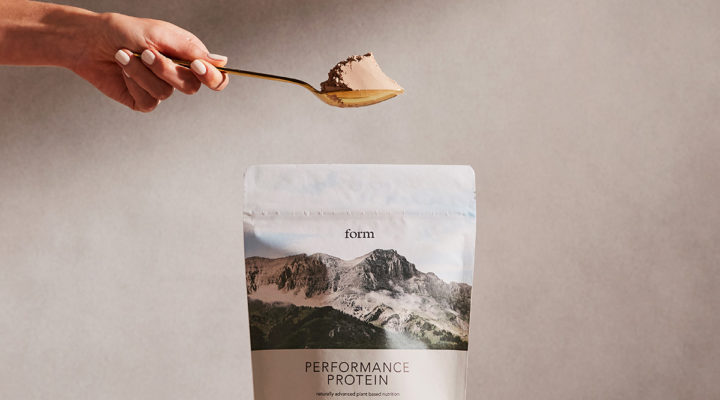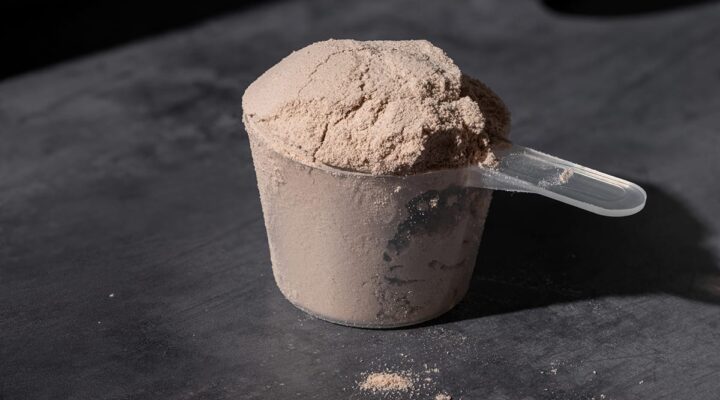Can Your Diet Help to Reduce Perimenopause Symptoms?

Over one billion women around the world will have experienced perimenopause by 2025, yet there remains an enduring lack of understanding about the topic.
Typically occuring in women aged 40 to 44 (but it can often start much earlier), the transitional period leading up to full menopause can be tricky to manage, as it can bring on a checklist of uncomfortable symptoms.
During the perimenopausal years, oestrogen – the hormone that regulates the menstrual cycle – begins to naturally decline. “Women have oestrogen receptors all over their bodies so they may feel the effects from the scalp to their toes,” says specialist menopause nutritionist Emma Bardwell.
“Common symptoms include mood swings, hot flushes, night sweats, aching joints and insomnia. It’s the lesser-discussed symptoms though – especially the psychological ones such as anxiety, brain fog and forgetfulness – that really need more airtime.”
One thing that Emma believes might help? Switching up your diet. Here we asked the women’s health specialist to share her golden rules for eating well at this time of life.

1. Have a balanced breakfast
Breakfast is often described as the most important meal, because it gives you the energy you need to tackle the day ahead. “Traditionally we tend to eat carbs like cereal, bagels, croissants and toast in the morning,” says Emma, “but by making the first meal of your day protein-based, you can feel a range of benefits. These include feeling fuller for longer, minimising snacking, regulating your blood sugar, staying energised and reducing bloating.”
To up your early-morning nutrition game, you could try topping your muesli with a dollop of yoghurt or adding a portion of hot tofu scramble to your usual avocado on toast.

2. Feed your gut
Bloating, Irritable Bowel Syndrome (IBS), constipation, water retention and sluggish digestion can become regular health niggles in the run up to the menopause.
“This is down to many things, including a decline in oestrogen, a sedentary lifestyle, stress and side-effects from certain medications,” explains Emma. “We also metabolise menstrual hormones in our gut via bacteria known as the estrobolome.”
It’s crucial that you prioritise optimising your gut at this stage in life. “Your diet is one of the biggest predictors of gut health,” says Emma. “Many of us think that popping a probiotic is the only way to a diverse microbiome, but we can get plenty of gut benefits simply by choosing the right foods to eat every day.”
To do this, she recommends eating one or two portions of fermented foods per day – such as sauerkraut and kimchi – and a handful of prebiotic foods, like onions, leeks, fennel, garlic and asparagus.
We should also aim for around 30 grams of fibre a day. “Fibre is key for feeding your microbiome, for healthy cholesterol levels and it helps to safely excrete hormones,” says Emma. “You can up your intake by eating more vegetables and fruit, nuts, seeds, beans, lentils and wholegrains like brown rice, oats and quinoa.”

3. Eat more protein
Protein is an essential building block that helps your body to repair cells and create new ones. Eating quality protein is important during the perimenopausal years because women begin to lose muscle mass and gain fat as they age.
“Perimenopausal women should be looking at around 1 to 1.2 grams of protein per kilogram of bodyweight per day,” says Emma. Adding strength training exercises to your workouts can help to build and maintain lean muscle too. “You should aim for a little more protein if you’re very active or have a physically demanding job.” Good sources of this vital macronutrient include vegan protein powder, tofu and seitan.

4. Add colour to your plate
The more naturally occurring colours you include in your diet, the better. This is because different-coloured plants are linked to higher levels of specific nutrients and have a variety of antioxidants.
Antioxidant-rich foods are important to help protect your cells against free radicals – harmful molecules produced from things like pollution, sunlight, smoke and alcohol. “Phytonutrients or polyphenols are plant-based antioxidants that have anti-inflammatory properties,” explains Emma. “They increase short chain fatty acids which have a broad range of health giving properties and have been shown to decrease cardiovascular risk.”
They can be found in lots of foods, including ground flax, black and green tea, a variety of berries, olives and turmeric. “A good rule of thumb is to eat roughly 30 different sources of fibre a week,” advises Emma.

5. Reduce caffeine
Many of us look forward to a frothy latte in the morning, but a regular caffeine habit might make perimenopause symptoms worse.
“Caffeine has been shown to have some health benefits,” says Emma. “It can improve performance, mood and concentration, and regulate bowel movement too. However, it can make many women feel jittery, anxious, and it can worsen hot flushes.” Women during perimenopause experience higher rates of insomnia too, and caffeine can often aggravate the issue.
“My advice is to keep coffee to the mornings only, as it can stay in your system up to eight hours after your last cup,” says Emma. “It’s good to also remember that caffeine isn’t just found in coffee, it’s found in black tea, green tea and dark chocolate too.”
6. Commit to Dry January
One of the major issues with alcohol is that it interrupts deep sleep; the bedrock for mood, weight management and energy. “Alcohol also has a dramatic impact on temperature control and can make you feel depressed, low, anxious and on edge,” says Emma.
“An evening tipple can also disrupt melatonin production, raise your heart rate, worsen hot flashes by increasing body temperature and damage your good gut bacteria,” she adds. Nixing alcohol altogether, or committing to drink-free days, can help to reduce the effect it has on symptoms.
The bottom line? “The menopause transition can be destabilising, but that it can also be a time for positive change,” affirms Emma. “Many women find that once their symptoms are under control, they feel buoyed up and renewed, ready to take on the next chapter of their lives.”


















